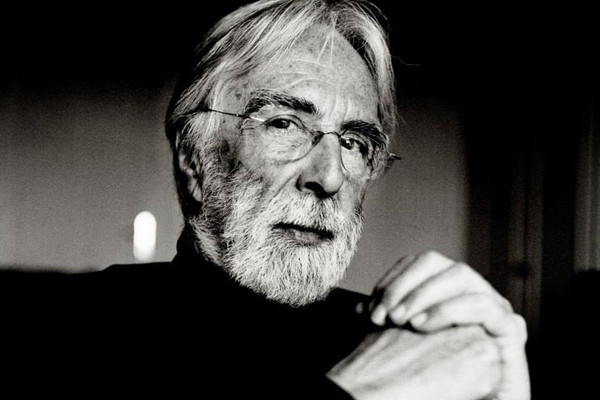Michael Haneke
Настоящее имя: Michael Haneke
Об исполнителе:
Austrian film director and screenwriter (b. 23 March 1942, Munich, Germany). Michael Haneke authored twelve feature-length films, often reflecting modern society's most controversial topics. Praised for outstanding cinematography and meticulous approach to every aspect of his oeuvre, Haneke won over 100 prestigious accolades. He is the only Austrian director to earn two Palme d'Or awards at the Cannes Film Festival in three years (and just the seventh filmmaker in the competition's history who achieved this). Michael Haneke worked in theater, staging several plays by Goethe, Strindberg and Heinrich von Kleist, and two of Mozart's operas: Don Giovanni (2006) at the Opéra National de Paris at Palais Garnier and Così fan Tutte (2013) for Madrid's Teatro Real. He also teaches at MDW's Film Academy in Vienna. Haneke grew up in a family of professional actors; his mother later remarried composer Alexander Steinbrecher. Michael studied at Vienna University but didn't excel academically, spending more time at local movie theaters. In 1974, he debuted as a TV director, producing seven television films and mini-series for various Austrian and German broadcasters and channels over the next fifteen years, such as Südwestfunk, ORF, ZDF, Sender Freies Berlin and Saarländischer Rundfunk. In May 1989, Haneke's first feature-length film, The Seventh Continent, premiered to much notoriety in Cannes and Munich, portraying an unmotivated and unexplained murder-suicide of a prosperous, "cookie-cutter" bourgeois family. In one of the cornerstone scenes, they cut all their cash and flush it down the toilet. Haneke predicted it would be the most offensive and disturbing for the audience; he claimed that in modern society, "the idea of destroying money is more taboo than parents killing their child and themselves." Indeed, he later witnessed people walking out of the cinema in shock during the money-flushing scene. The Seventh Continent started Michael Haneke's "emotional glaciation" trilogy, which explored the progressive societal alienation in Austria, followed by Benny's Video (1992) and 71 Fragments of a Chronology of Chance (94). It also established some recurring traits in Haneke's films, such as almost exclusively diegetic music (i.e., no "offscreen" soundtrack besides what characters are playing or listening to). The movie won the Film Fest Gent's "Georges Delerue Prize" for Best Use of Music in Film. In 1997, Michael Haneke wrote and directed Funny Games, filmed by Jürgen Jürges and starring Ulrich Mühe with Susanne Lothar as lead characters (who are married in real life and frequently worked with Haneke), and Frank Giering as one of the villains. Commonly misunderstood as horror or "slasher," the movie was created as a commentary on how violence is presented in the media — extremely brutal, yet entirely pointless. Following a "mainstream" breakthrough with his 2001 French film The Piano Teacher and the commercial success of Cachè (2005), Haneke revisited "Funny Games" a decade later — this time, as he always intended, set in Hollywood. Premiered in October 2007 at BFI's London Film Festival and in January 2008 at Sundance Film Festival in the USA, Funny Games was a rare example of a "shot-for-shot" remake. Haneke used the same house's interior and props and collaborated with distinguished cinematographer Darius Khondji, painstakingly replicating every detail, including lighting and back tones in every frame. Thus, the only difference was in the English-speaking cast, featuring Tim Roth with Naomi Watts as a tortured couple and Michael Pitt with Brady Corbet as assailants.
